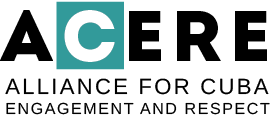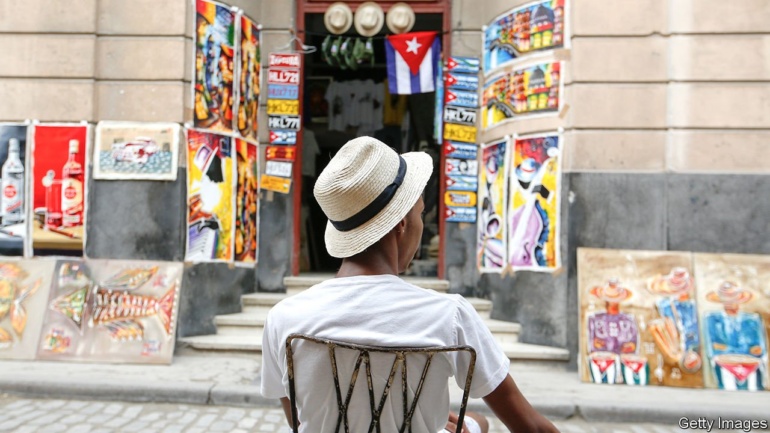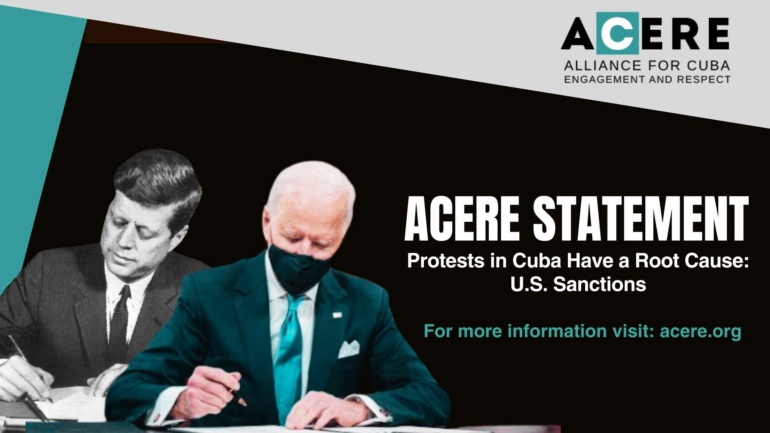The Alliance for Cuba Engagement and Respect (ACERE) finds it necessary to set the record straight regarding the press conference held earlier today, March 8, by a group of House GOP Cuban Americans. Representatives Salazar, Gimenez, Diaz Balart, and Malliotakis condemned a recent trip to Cuba by Representatives Omar and Jayapal.
However, in the three years since Cuba was designated a state sponsor of terror by the Trump administration, there have been at least three other congressional delegations to Cuba, including one which was bipartisan. Moreover, just in the last several weeks, multiple delegations of U.S. officials have visited Cuba. On January 29, the State Department’s Special Advisor on Disability Rights, Sara Minkara, traveled to Havana and met with government officials, NGOs, and entrepreneurs, among others. On February 18, officials from the Departments of Agriculture of Maine, Connecticut, Montana, Indiana, South Carolina, Louisiana, and Minnesota visited Cuba for five days to meet with government officials and the private sector. On February 20, Kerri Hanna, the State Department’s Deputy Assistant Secretary for Public Diplomacy, Policy, Planning, and Coordination, went to Havana for four days, where she met with government officials and civil society.
These delegations came and went without controversy, yet when Congresswomen of color visit Cuba in the spirit of diplomacy, the antagonistic voices opposing engagement become louder in an effort to silence them and the voices of a majority of U.S. citizens who support building friendly relations between our neighboring countries. Various members of the House of Representatives have visited Cuba over the past several years, believing that the policy of engagement yields far more peaceful and productive relations than the failed and rejected isolationist policies of the past. ACERE notes that in January, Representative Barbara Lee – who has been to Cuba herself multiple times – was expelled from a House Foreign Affairs Subcommittee meeting on Cuba policy by Representative Salazar. These attempts to silence, harass and shun elected officials who themselves have visited Cuba, talked to Cubans and witnessed the effect of U.S. policy on their lives is alarming and presents a cautionary tale to all who believe dialogue and not threats are the most effective diplomatic tool for creating change.
ACERE further notes that the United States and Cuba continue to cooperate on issues of law-enforcement, border security, and counterterrorism. On February 7, the Departments of State, Homeland Security, and Justice hosted Cuban officials for the sixth Law Enforcement Dialogue since 2015. Last year, there were at least three high-level delegations between U.S. and Cuban officials on security issues, further undermining the State Department’s designation of Cuba as a state sponsor of terror.
For more information about Cuba’s unfounded SSOT designation, read ACERE’s one-pager and watch our Congressional briefing.



